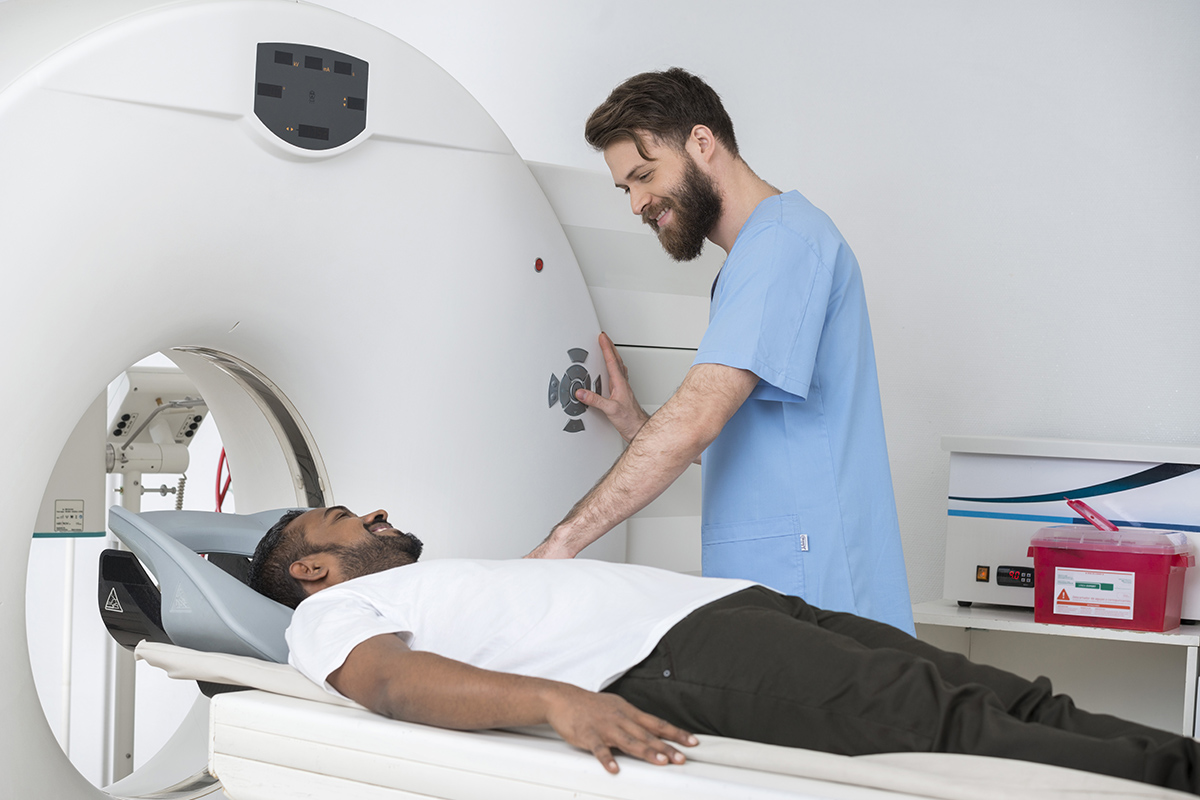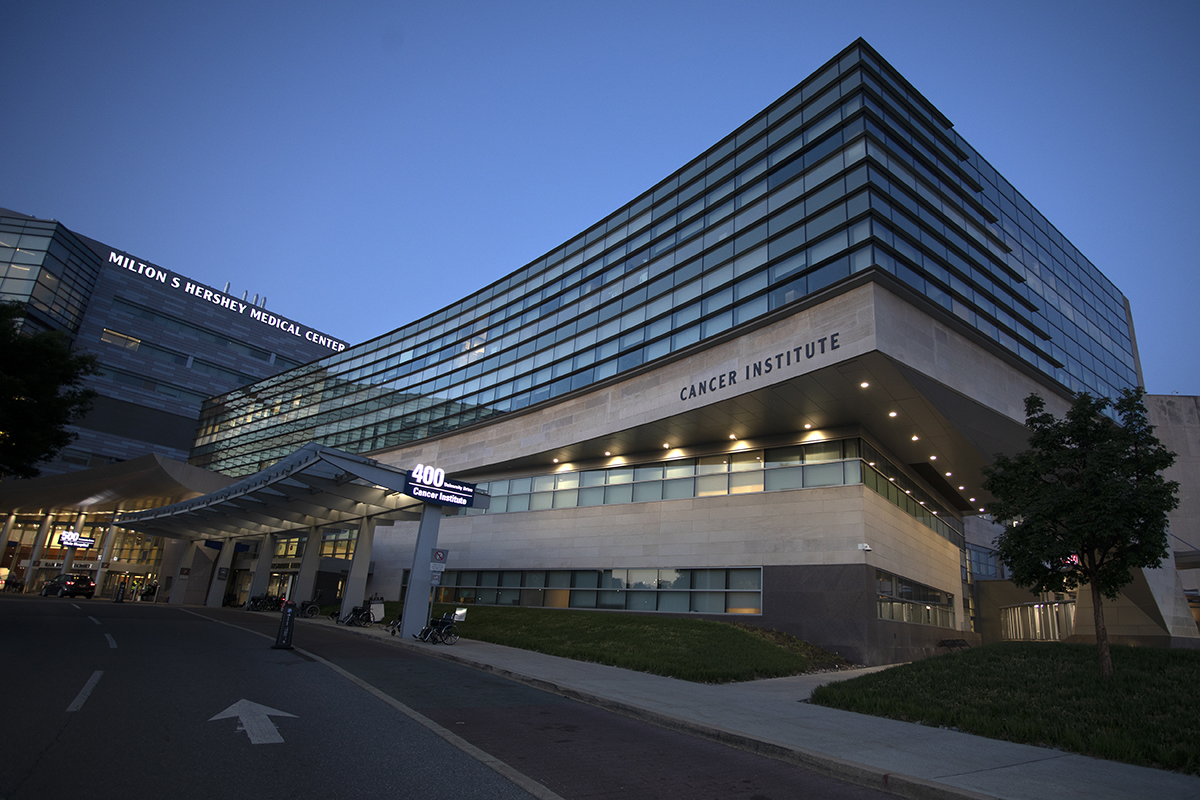
News in Brief, August 2022
August 16, 2022
Trial Spotlight: Neha Vapiwala on the EA8191/INDICATE Study for Prostate Cancer
August 16, 2022Institution Spotlight: Penn State Cancer Institute


 By David F. Claxton, MD
By David F. Claxton, MD
Voting Member, ECOG-ACRIN Principal Investigator Committee
and
Professor, Department of Medicine, Division of Hematology and Oncology, Penn State Cancer Institute
Penn State Cancer Institute, established in 2002, is central Pennsylvania’s only academic clinical and research cancer center. The Cancer Institute’s combined innovative approach to personalized treatment and depth and breadth of research make it uniquely equipped to fight this devastating disease.
At our main location in Hershey, the Cancer Institute offers advanced, comprehensive cancer care all at one location. This allows us to use a real-time medicine model, where services are integrated to ensure they are administered at the right place and the right time for each patient. These services include:
- State-of-the-art infusion therapy suites with private rooms for chemotherapy and biologic therapies
- A new and advanced radiation oncology department for treatment options that refine tumor targeting, including one of the first MRI-guided linear accelerators in the northeastern United States
- Specialized operating rooms and postoperative care units for complex surgeries, including many types of minimally invasive and robotic procedures
- A 40+ bed inpatient oncology unit at Penn State Health Milton S. Hershey Medical Center, adjacent to the Penn State Cancer Institute. This facility offers the largest bone marrow and stem cell transplant service in central Pennsylvania, including CAR-T cell therapy.
- A Cancer Clinical Trials Office that administers a broad portfolio of novel clinical trials across 11 different cancer disease teams
- Patient-centered services, including the Cancer Assistance and Resource Education Center and an outdoor healing garden that offers a quiet retreat for both patients and families
We also provide oncology services at affiliated locations in central Pennsylvania. These include Penn State Health St. Joseph in Reading, Mount Nittany Health in State College, and outpatient facilities in Harrisburg, Camp Hill, and Lancaster.
Part of providing this leading-edge cancer care is driving research efforts to discover new treatments, cures, and prevention.
The research arm of the Cancer Institute is focused on three primary areas: Mechanisms of Carcinogenesis, a basic science program that seeks to understand the causes of cancer and possible targets for treating it; Cancer Control, a program that analyzes target populations in terms of ethnicity, socioeconomic status, and other factors to consider how different groups get access to—and take advantage of—health care, and how treatments can be provided more efficiently and cost-effectively; and Experimental Therapeutics, a program most directly focused on translating research into practical treatments. It involves testing novel approaches in specific patient populations to evaluate their effectiveness.
Additionally, the Cancer Institute is studying the following:
- Molecular pathology
- Immunotherapy
- Bone marrow and stem cell transplantation
- Advanced radiation oncology technology, including MRI-guided radiotherapy
At Penn State Cancer Institute, I am a professor of medicine in the Division of Hematology and Oncology. I serve as principal investigator for Penn State on the ECOG-ACRIN Principal Investigator Committee and study co-chair for the open leukemia trial EA9152, A Phase Ib/II Study of Venetoclax (ABT-199) in Combination with Liposomal Vincristine in Patients with Relapsed or Refractory T-cell or B-cell Acute Lymphoblastic Leukemia.
Monika Joshi, MD, associate professor at Penn State Cancer Institute and chair for ongoing clinical study EA8185 / INSPIRE, is a prominent Penn State Cancer Institute faculty member and ECOG-ACRIN participant. She leads the Penn State Cancer Institute Cancer Clinical Trials Office. Her area of focus is in studies of genitourinary tumors. A notable contribution was her recent American Society of Clinical Oncology (ASCO) presentation, EA8185: Phase 2 study of bladder-sparIng chemoradiation (chemoRT) with durvalumab in clinical stage III, node positive urothelial carcinoma (INSPIRE), an ECOG-ACRIN/NRG collaboration (Meeting Abstract, 2022 ASCO Genitourinary Cancers Symposium).
One of seven Penn State interdisciplinary research institutes, the Cancer Institute integrates the expertise of its sister institutes, such as Penn State Clinical and Translational Science Institute, which serves as a catalyst for translating new research findings into tangible health benefits. The Cancer Institute is also a member of the Big Ten Cancer Research Consortium, which conducts collaborative, highly translational oncology trials that leverage the scientific and clinical expertise of Big Ten universities.
The Penn State Cancer Institute works relentlessly to treat and beat cancer through targeted, efficient, and effective care. We are committed to exploring and discovering novel, advanced therapy options that produce better health outcomes and possible cures for patients throughout our communities.
![ECOG-ACRIN logo[19516]275×75](https://blog-ecog-acrin.org/wp-content/uploads/2021/03/ECOG-ACRIN-logo19516275x75.png)
